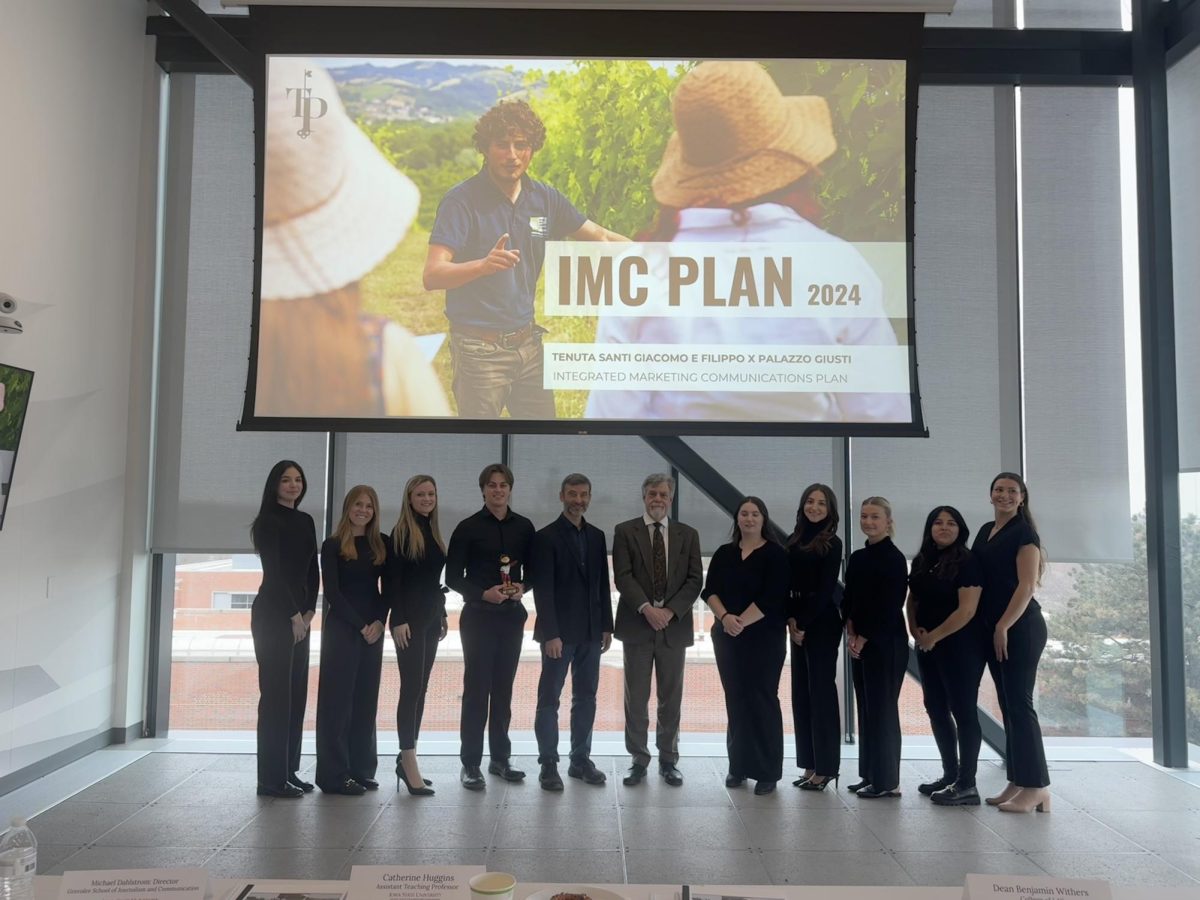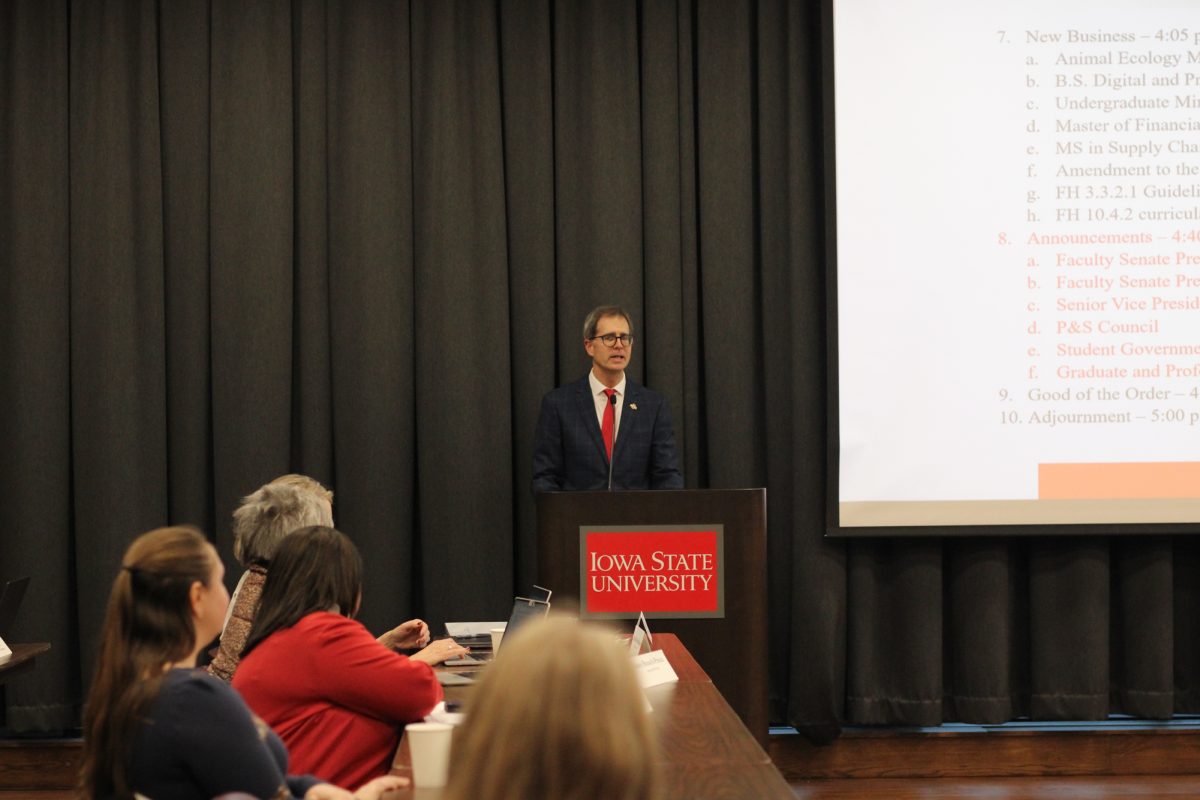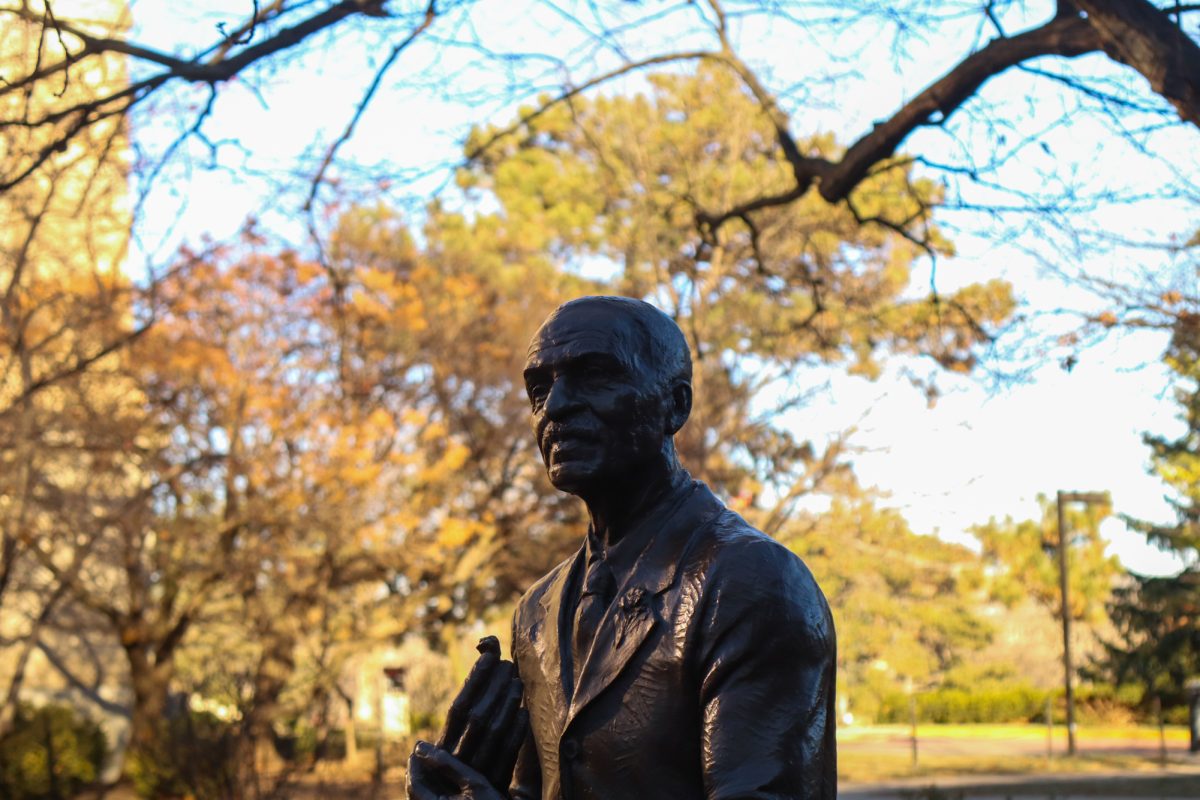The Iowa Board of Regents voted on the report and recommendations proposed by the Diversity, Equity and Inclusion (DEI) Study Group Thursday in Cedar Falls.
As previously reported by the Daily, the board’s report proposed 10 recommendations surrounding DEI programs within the three regent universities. The report was compiled at the direction of the Iowa legislature via the passage of Iowa Senate File 560.
The board initially passed six recommendations and passed the other four individually after discussion.
The recommendations
-
Restructure the central, university-wide DEI offices to eliminate any DEI functions that are not necessary for compliance or accreditation. Support services in these offices must be broadly available to all students and/or employees, subject to applicable state or federal eligibility requirements.
-
Review all college, department or unit-level DEI positions to determine whether DEI-specific job responsibilities are necessary for compliance, accreditation or student and employee support services. Any position responsibilities that are not necessary for these purposes shall be adjusted or eliminated. Position and/or working titles shall be reviewed to ensure they appropriately reflect position responsibilities.
-
Review the services provided by offices currently supporting diversity or multicultural affairs in other divisions of the university to ensure they are available to all students, subject to applicable state or federal eligibility requirements. Program promotional and informational materials and websites shall be updated to clarify that the mission of these offices is to support success broadly.
-
Take reasonable steps to assure the following:
- No employee, student, applicant or campus visitor is required to submit a DEI statement or be evaluated based on participation in DEI initiatives, unless the position is required for DEI-related compliance or accreditation.
- No employee, student, applicant or campus visitor is compelled to disclose their pronouns.
-
Develop a board policy prohibiting the consideration of race and other protected class characteristics in admissions that is consistent with the law.
-
Initiate a review of DEI-related general education categories and update category names to accurately reflect the array of options students may select from to satisfy these requirements and ensure a breadth of offerings.
-
Standardize issuance of annual employee guidance regarding the separation of personal political advocacy from university business and employment activities.
-
Explore potential recruitment strategies for advancing diversity of intellectual and philosophical perspective in faculty and staff applicant pools.
-
Develop a proposal, including cost, to establish a widespread initiative that includes opportunities for education and research on free speech and civic education.
-
Annually, the board office shall issue a reminder to the universities on the requirements of 4.2.I, which governs university websites and other university communications.
Although portions of some of the general education courses deal with DEI concepts, Regent Jim Lindenmayer, a member of the study group that gathered DEI information from the regent institutions and feedback from the general public, said none are required, and regent universities have a variety of courses to select from. Lindenmayer said the board received “much feedback that students find topics included in this experience as valuable in expanding their personal understanding and worldview.”
“The board has a long history of recognizing and respecting academic freedom of the faculty, and the study group notes the importance of faculty control of curriculum,” Lindenmayer said during the meeting. “We feel that undergraduate students have a wide range of options to select from that should align with their personal interests and goals.”
A motion to amend the eighth recommendation, made by Regent Abby Crow and seconded by Regent Nancy Dunkel, failed. The board did amend the ninth recommendation, changing the word “develop” to “explore” and citing accountability and measurability of progress as reason to reword.
Crow, who graduated in May from the University of Iowa and has served on the board since 2021, said she hoped the amendment would remind regent universities that the board values the importance of recruiting and retaining faculty of diverse ideas while not necessarily exploring recruitment strategies and investing money in that effort.

Regent Robert Cramer, who voted no on the amendment of the ninth recommendation, said he would like to hear from the universities, as the original amendment moved to change the language to “explore potential strategies.”
“We’re not asking them to spend any money or implement any strategies. We’re asking them to explore, and then come back in April with those recommendations,” Cramer said during discussion of the amendment.
Regent David Barker said DEI programs have grown rapidly over the past several years, which he said prompted the legislature to call for a board assessment.
“I think any program, any bureaucracy that grows rapidly needs a close look from time to time by governing boards and looking at which things work well and which don’t,” Barker said.
In its discussion of recruitment strategies, Regents Sherry Bates and Crow said they questioned the necessity of the eighth recommendation.
“I feel that’s a redundant aspect to put in there, because if everybody’s following the above policies and with affirmative action, I just question whether that’s needed,” Bates said.
During the discussion, Dunkel said she could not agree with some points described in the recommendations.
“We have to be careful here,” Dunkel said. “As good board members, we need to use our good judgment to steward the institutional systems forward. We have a fiduciary duty of loyalty to our regent schools’ mission, and we’re supposed to stay independent and faithfully serve our institutions over our other interests.”
After the first recommendation was addressed, Crow commented on the influx of student feedback after the report went public and said she wanted to support the students of her constituency.

“I just don’t believe that I can support something like this because it goes against a lot of the student comments and [what] a lot of people have come [to] me talking about,” Crow said.
Students and faculty from regent institutions spoke Wednesday during the meeting’s open forum, the majority detailing personal ties to university DEI programs.
Nic Trip, a senior at the University of Northern Iowa (UNI) in social work, said personal campus experiences were elevated due to DEI services. Trip was given specific training on campus regarding minority and marginalized identities, which Trip said gives a competitive edge in getting hired.
“I worry for the future students who may not have had that leg up afterwards,” Trip said. “Unfortunately, education within this country and in the state have been politicized. It is imperative to remember why we all hold so much value within our higher education institutions.”
When considering the UNI 2023–2028 strategic plan, Trip said the first goal listed on the website is to create equitable, diverse and inclusive opportunities.
“The current recommendations that were presented through the survey and released from the Board of Regents are clearly a deviation from the core of the university,” Trip said. “There is a need to recognize and service our diverse populations, which is evidenced by the university’s clear strategic plan.”
Keenan Crow, the director of policy and advocacy at One Iowa and a UNI graduate, said the report gave “an analysis that begins and ends with its predetermined conclusions that DEI programming is somehow a waste of resources and that it needs to be curtailed.”
“What is amassed in the report is a set of data of current activities and feedback from the campus community, followed by a set of recommendations that either ignore or do the polar opposite of what is indicated by the data and the feedback,” Crow said.
Crow said the report left out any rationale for the recommendations given, and “at no point do the authors think to engage with the academic literature surrounding the beneficial impacts of DEI offices and their associated services.”
Other board business
The Board of Regents approved the construction plans and changes discussed during the Wednesday meeting, including an increased budget for CYTown.
The approved changes will fund a 32% increase in CYTown Phase 1 and Phase 2, totaling more than $9 million.
The board heard updates from President Wendy Wintersteen on research and grants for research. Wintersteen’s update also included highlighting the Jack Trice 100-year commemoration closing ceremony and the naming of Frederick Douglass Patterson Hall.
David Spalding, the dean of the College of Business and the vice president of economic development and industry relations, reported on economic development to the board. According to Spalding, the economic impact of Iowa State in the last year is $5 billion.
Spalding also showcased awards Iowa State has received, including being named the entrepreneurial university of the year in the Americas by the Accreditation Council for Entrepreneurial and Engaged Universities.





















Sophia | Nov 17, 2023 at 3:46 pm
Why are people making such a big deal out of pronouns? It’s literally like asking someone for their name, why is the university wasting time on this?